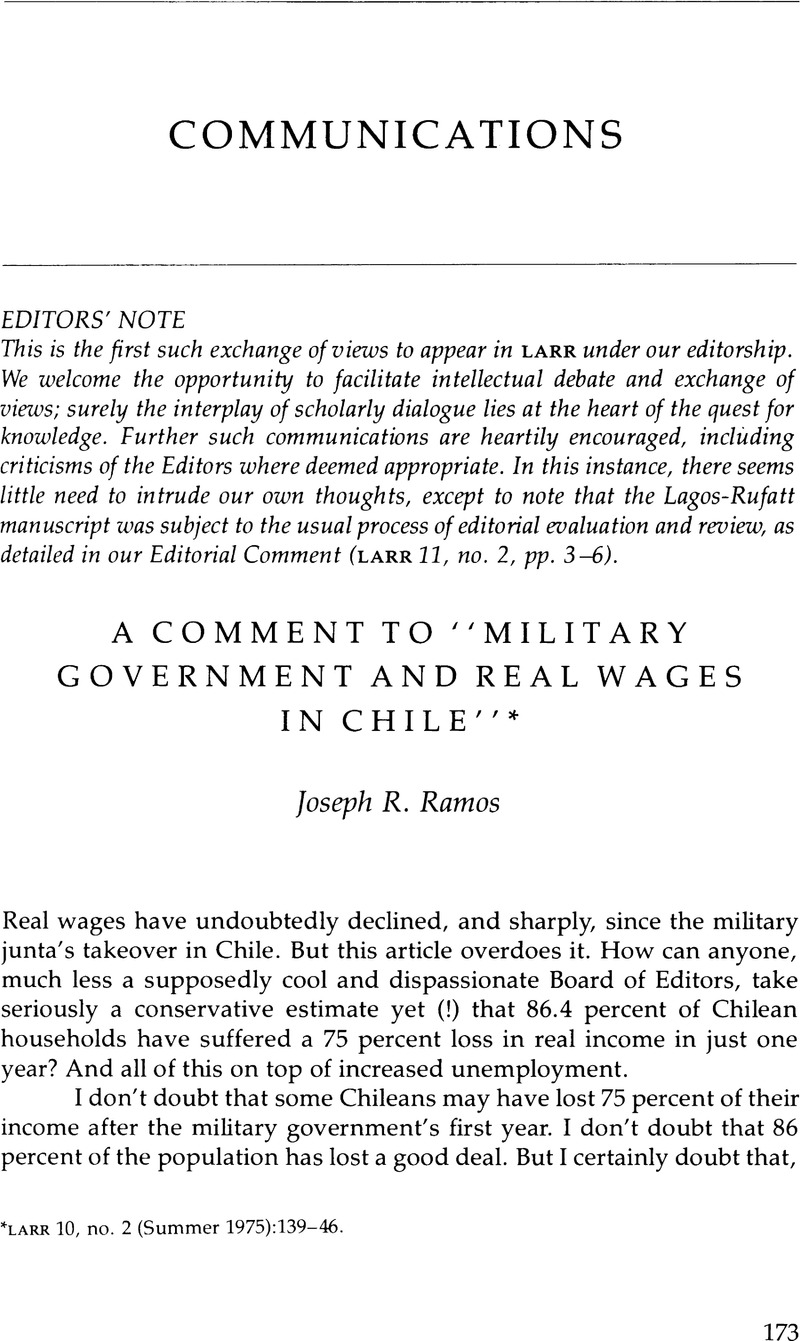Article contents
A Comment to “Military Government and Real Wages in Chile”
Published online by Cambridge University Press: 24 October 2022
Abstract

- Type
- Communications
- Information
- Copyright
- Copyright © 1977 by the University of Texas Press
Footnotes
LARR 10, no. 2 (Summer 1975):139-46.
References
Notes
1. As for mínimums, the problem is that in the base period, there were two legal minimum wages—one for white collar workers (sueldo vital), the other for manual wage earners (salario mínimo obrero). The latter was less than 60 percent of the former in the base period 1968-69. The military junta established one minimum for all. Though the new minimum is lower, in real terms, than the sueldo vital, it is slightly higher than the salario mínimo obrero. A more appropriate comparison would, therefore, be of poor workers' earnings in the base period and in 1974. Unfortunately no such data were available till the January-March 1975 survey. As I report in the text, these fell 31 percent.
2. Nor will it do to say that a price index composed solely of food products is more representative of the inflation experienced by the poor since food makes up a larger percentage of the poor's consumption. For, though reasonable as a hypothesis, it turns out that services, which the poor consume less, have risen as much as food. A study comparing the effective variation in prices between 1969 and 1974 concluded that the difference between weighting price increases in accordance with the poor's distribution of consumption and weighting them in accordance with the consumption basket of the average worker was less than 5 percent for the entire five year period of interest.
3. “El costo social: Hechos e interpretaciones,” Estudios de Economía, Número 6, segundo semestre 1975 (Departamento de Economía de la Universidad de Chile).
- 1
- Cited by




